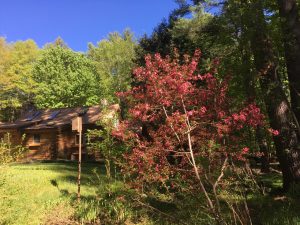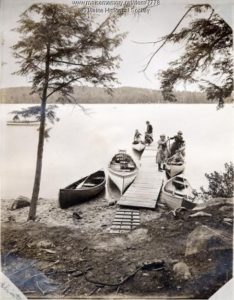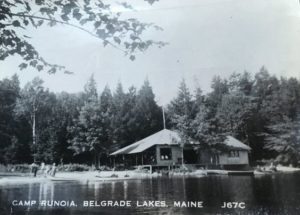I love nature. I am in my element in nature, but as any outdoor enthusiast in New England will attest to, black flies and mosquitos are challenging. Black Flies come first and whether you are a gardener, hiker or paddler, you have had to balance the joy of those first warm spring days with trees and flowers blooming, with the annoyance of those pesky insects.
So what good are black flies? Well, they are actually a great indicator of clean water. They require clean running water for breeding and cannot tolerate pollution, so if you have black flies you also have a clean stream or river nearby. While the females are seeking blood for nourishment, the males are only dining on plant sap and nectar, so they are doing their part in pollinating our earliest spring flowers. You can even thank a black fly for a great blueberry crop. Black flies are food for other wildlife including dragonflies, bats and swallows. It’s kind of nice to know that they aren’t just dining on us, but they too are part of the food chain! Happily, black flies depart just about the time mosquitos come out, so we don’t have to contend with both at once.
How about the mosquito and its value? Two words: food chain. There are thousands of species of mosquitos all over the world and they are critical to a healthy ecosystem. Mosquitoes are a food source for birds, amphibians, reptiles and other insects. Just like black flies, male mosquitoes are often plant pollinators and larval mosquitoes live in aquatic environments and are an important diet staple for a variety of fish. And they are a source of many jokes. Anyone who has vacationed in New England and strolled around a gift shop has seen countless items with a picture of a mosquito with the tagline, “State Bird of…”.
While I can’t say I like black flies or mosquitos, I can say that I love that they have value in our natural world. So, I will put on my repellent, long sleeves and pants and venture into my back yard to share nature with them.



